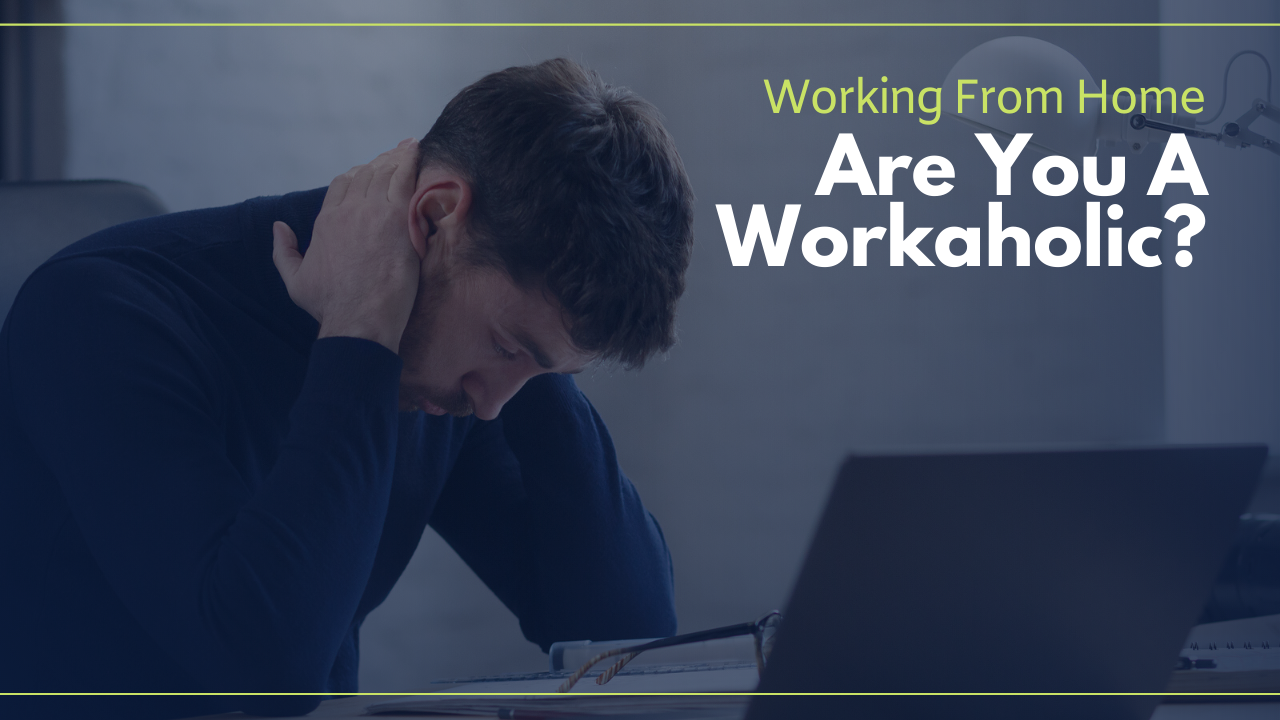- Workaholism is a real condition that can have a negative impact on health and wellbeing.
- Symptoms include loss of sleep due to stress, and finding it difficult to disengage from work.
- With more people working from home, it’s important to create clear work/life boundaries to prevent burnout.
Workaholic is a term that has been used casually for so long that it has lost some of its meaning. However, workaholism is a real thing that can have negative consequences in a person’s life.
Workaholism is defined as an obsessive-compulsive disorder that can have serious health effects.
While you may think that your working habits are normal, you may want to re-evaluate that, particularly as people increasingly work from home and find it harder to keep the line between work and life from blurring.
Canva recently conducted a survey about working habits in the United States. Here’s what the survey found.
“The majority of employed US people work a minimum of 8 hours a day (71%), with over a third (36%) saying they work over 9 hours a day. Over half (53%) get less than 8 hours of sleep a day and just 22% said they enjoy 8 hours of leisure time each day.”
It paints a pretty normal picture, but lack of sleep and lack of leisure time can have negative implications in the long-term, including increased stress levels and a higher incidence of burnout.
“While short-lived stress is often a part of daily work life, too much prolonged stress can have health implications, such as a lowered immune system, trouble sleeping and frequent headaches.”
While some believe the adage that if you love what you do, you’ll never work a day in your life, this type of thinking can lead people down a rabbit hole.
Canva’s survey found that 84% of US workers would make sacrifices for work:
- 60% of respondents would sacrifice their leisure time
- 41% of respondents would sacrifice their sleep
- 40% of respondents would sacrifice their family time
- 20% of respondents would sacrifice their health.
As for the last item, Canva found that “there are several reasons why a worker may put their work above their physical and mental wellbeing. Included in the list are guilt for missing work, simply having too much to do and internal pressures.”
Are you a workaholic?
Before you jump to your answer, keep the following in mind:
“Symptoms of workaholism include loss of sleep due to stress, feeling guilty or anxious during free time and finding it difficult to disengage from work.”
Furthermore, almost 90% of US workers said they had experienced symptoms of workaholism at some point or another. Canva found the most commonly experienced symptoms include:
- Loss of sleep due to stress (45%)
- Skipping meals because of work (43%)
- Feeling guilty when leaving before colleagues (40%)
- Finding it difficult to disengage from work (38%)
- Feeling guilty or anxious when not working (38%).
While it’s OK to experience some of these on occasion, particularly if your line of work includes high-season vs low-season, feeling the above symptoms should be the exception and not the rule.
Luckily, organizations around the world are proposing several initiatives to help combat workaholism and help workers find a work-life balance (or integration if you will) that best works for them.
The most popular of these include the 4-day work week, with 55% of US workers saying they would support it, followed by flexible working hours, which is supported by 52% of US Workers. Respondents also cited unlimited vacation days and a reduction in working hours during the week as viable options.
On the other hand, there are some workers who would favour the 9-9-6 work schedule, which requires working from 9am to 9pm 6 days a week. Luckily for many, this initiative is only supported by 17% of US workers, which makes it highly unlikely for it to reach the US any time soon.
Strategies to reduce workaholism
- Write everything in your calendar. This means that if you need to schedule going to the gym, going for family dinner, or scheduling sleep, you should do it.
- Set alarms on your phone or laptop to remind you to take a break and rest.
- Avoid engaging in work when you’re spending time with family or having some “me-time”.
- Avoid work during the weekends when possible.
- Don’t eat and work, whether you’re working from home or the office.
- Clock in enough zzz’s on a daily basis; this will improve your work performance and keep stress levels in check.
- Whenever possible, delegate.
- Leave your phone behind when you’re spending time with family.















